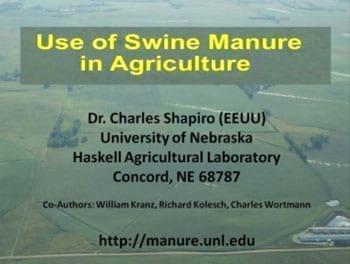The French and Dutch Experiences in Controlling Odour on Farms
There are several ways by which we can control livestock odours one of which we will discuss now. You see, when you keep pigs and don't take good care of the pens/ farm there is nothing you can do, the odour will always be embarrassing. But when you take good care of the farm the place will odourless. You can equally dig a skeptic tank and always wash the waste into the skeptic tank you will see that the odour will be controlled. Also when you wash the pheases often you will see that the odour will equally be controlled...
We run 80 producing sows with 20 to 30 replacement gilts (for our use and sale) along with 10 boars. We will raise about 40 piglets to finish (all the room we have). We usually have about 200+/- piglets on hand. There are about 350 pigs producing odor waste daily.
We installed a methane gas plant and all cages have a runway to the input of the pre-mixing tank. All manure swept up is wheeled to the tank. In the mixing tank we run the manure through a mixing using waste water that is also directed into the tank. When mixed the liquid manure is run into the methane plant. The plant output is odor free manure/fertilizer that is sold or moved to our rice fields.
The farm is surface cleaned right after morning feeding and then deeper cleaned during the day, often twice a day if needed. All pens are deep cleaned prior to a new batch of pigs (or a sow or boar or gilt) goes into that pen. We attempt to keep all of the farm clean at all times. Not only clean from manure but clean from dirt and grim.
EM is also used to wash down areas.
Why? Because we live right on the side of the village and villagers do not like smell from our farm. Also, I know if the workers keep a clean farm the will also take good care of the livestock on the farm. Our farm is often subject to surprise visits from the Thai Government agencies and we always pass with flying colors. And the pigs stay healthier! Lastly, buyers know that they need to, and do, pay a little more for our pigs as they know they are raised with kindness and with care.
Other benefits: the local government livestock office uses our farm for a model farm when they are training. They often send people to our farm when asked where they can purchase pigs. The COOP has a program where their members can raise piglets to market (usually under 20 piglet to finish farms). The piglets in the program need to be approved BUT if their member purchases from our farm they are automatically approved. A farm needs all of the connections possible in order to make a profit as the price of feed makes the margin low.
And odor; keeping the attitude of cleanliness will result in odorless (or close to) farming.
You and the farm staff need to maintain that attitude and every thing else should fall into place. My mother brought us up saying, "Cleanliness is next to Godliness!" - now how could a man let his mother down?
Good luck and God Bless,
Randall









